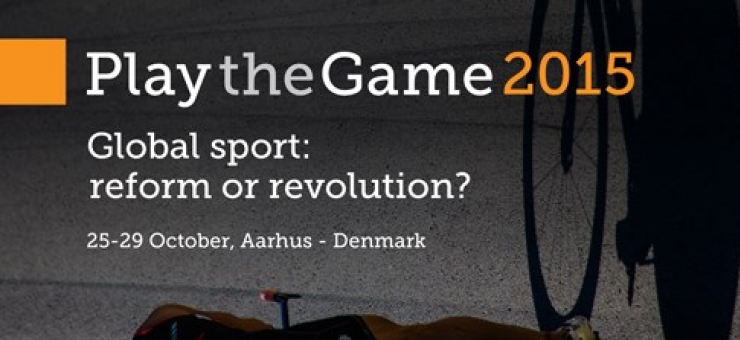News
Good sports governance requires accountability to the players

International Sporting Federations (ISFs) will continue to fall short on good governance standards unless they are held accountable to the players, Brendan Schwab, the Head of UNI World Athletes, told the prestigious Play the Game conference in Aarhus, Denmark.
Schwab called on all ISFs to embrace three fundamental reforms to include the athletes in the governance and decision-making processes of their sport:
To acknowledge the athletes as ‘owners’ of their sport alongside other key stakeholders such as national associations, clubs and leagues
That, as sports are structured as cartels, they warrant not special treatment and protection but enhanced scrutiny and accountability including the strict application of competition and labour law
To engage in social dialogue and collective bargaining with athlete unions to ensure the voice of the athlete is heeded in the day to day management of sport.
The global crisis of confidence in the governance of sport has dominated the opening two days of the Play the Game conference.
“As the athletes are essential to the generation of the wealth of most ISFs, it is incongruous that they are excluded from sport’s governance framework,” Schwab said.
“For example, the 64 matches involving 736 players at the 2014 FIFA World Cup in Brazil generated over $4.8 billion, with no more than 2% of that wealth returned to the players. This contribution to the financial clout of ISFs as well as the role of athletes in promoting and developing sport requires the players to have a say in how their sport is governed.
“Athletes should have the power with other key stakeholders to hold the Executive Committees of ISFs to account. This must include the power to elect and remove members of the Executive Committees of ISFs, which must be restructured to ensure they are independent of vested interests and act exclusively in the long term best interests of their sports.”
Schwab also said that a cultural change is required on the part of many ISFs so that they see athletes as part of the solution to the threats facing the governance, sustainability and integrity of sport, rather than as the cause of those problems.
“The lack of proximity between sport’s decision makers and athletes means that the power of athletes to address sport’s key challenges is not being harnessed. Research of international player associations such as FIFPro, the world footballers’ association, shows that athletes overwhelmingly have a high ethical base and their sense of duty and loyalty to their sport and family is sport’s most powerful weapon in overcoming integrity threats such as match fixing.
“Sports should therefore be working with athletes, rather than trying to police them.”
Schwab predicted that the next few years of sport will be a turbulent period for athletes’ issues if ISFs continue to exclude athletes from sport’s top tables.
“Athletes are again resorting to the law and industrial action to install much needed accountability into the governance of sport, to make it clear that sport is not above the rule of law and that the voice and interests of the athletes must be heeded.
“The current landmark proceedings involving German speed skater Claudia Pechstein and the Court of Arbitration for Sport, together with the recent complaints to the European Commission by Dutch speed skaters Mark Tuitert and Niels Kerstholt and FIFPro, suggest an increasing tendency on the part of athletes to reinstall the law as a central player in the good governance of sport. Women professional footballers have recently been on strike in Australia and Italy to achieve better pay and conditions, and US players led a class action in Canada last year over FIFA’s decision to play the 2015 FIFA Women’s World Cup on artificial pitches.
“The long term solution is for sport to work in partnership with the athletes. Through social dialogue, sports and their athletes can establish fair economic terms, enhance the education, development and wellbeing of athletes and to establish effective measures to preserve the sustainability and integrity of sport,” Schwab concluded.
A complete copy of Mr Schwab’s paper is available below.
UNI World Athletes is an autonomous sector of the UNI Global Union. It constitutes a global collective of 85,000 athletes through major player associations including FIFPro, the Federation of International Cricketers’ Associations, the International Rugby Players’ Association, EU Athletes, the US National Basketball Players Association, the US National Football League Players Association, the National Hockey League Players Association (United States and Canada), the Japanese Baseball Players Association and the Australian Athletes’ Alliance.

